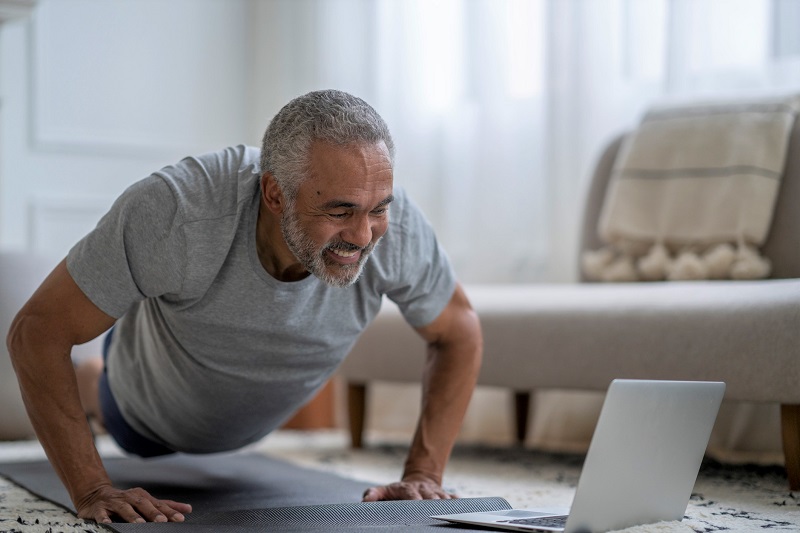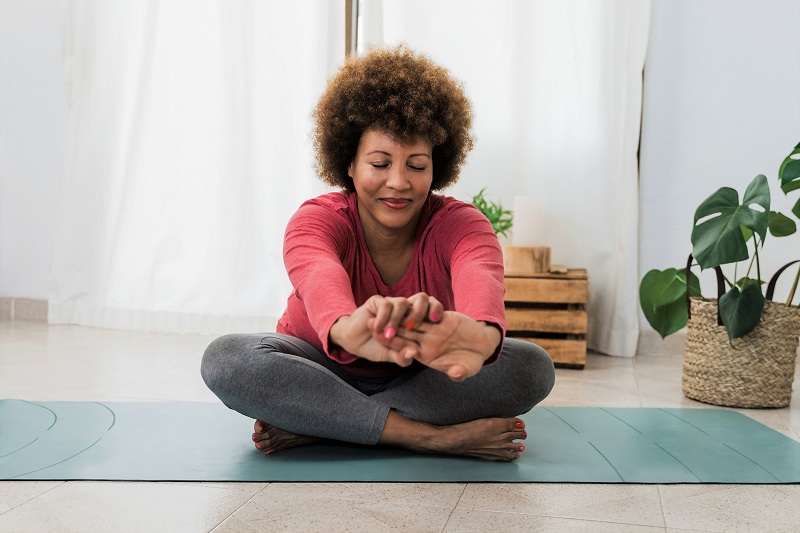
Stress is unavoidable in our busy modern lives. Work, family, relationships, our health, and the news about the world can all cause us to feel tense. Daily, persistent or chronic stress can lead to headaches, insomnia, upset stomach, muscle and joint pain, and even more serious symptoms like chest pain and high blood pressure. Stress is also a common cause of overeating and, even worse, we tend to make unhealthy food and drink choices when we’re tense or anxious.
You can’t totally eliminate stress from your life, but you can alleviate the symptoms. Exercise has been shown to reduce the effects of stress. Even better, “regular exercisers are more resistant to the emotional effects of acute stress, which in turn, may protect them against diseases related to chronic stress burden,” says a report in the journal Frontiers of Physiology.
How does exercise reduce stress? How much exercise do you need to do? What type of exercise is best? What are the keys to success? Here’s what the scientists who study it have found out.
Hormone Balance
Our bodies have a natural “fight or flight” response that help us react to stressful situations. Two hormones, adrenaline and cortisol, are released to prepare us to act when faced with an immediate threat. Those hormones raise your blood pressure and blood sugar levels, which in the short-term help you respond to the threat.
Persistently high levels of adrenaline and cortisone can turn those responses into serious health problems. According to Harvard Health, “Exercise reduces levels of the body’s stress hormones, such as adrenaline and cortisol. It also stimulates the production of endorphins, chemicals in the brain that are the body’s natural painkillers and mood elevators.”
By the way, when we laugh, our endorphins are increased why cortisol levels are decreased.
Rest Well
Worries and frustration make it hard for us to fall and stay asleep at night. When we don’t get enough sleep, we are groggy during the day and it disrupts the hormones that regulate our appetites.
Exercise leaves our bodies feeling tired so we’re more relaxed when we go to bed. “Exercise can also help to stabilize your mood and decompress the mind,” says John Hopkins Medicine. People who exercise regularly tend to sleep longer and more soundly, according to a study in the Advances in Preventative Medicine.
Better Self-Image

Exercise has another important role to play in reducing stress when you’re trying to lose weight. Nutrisystem recommends 30 minutes of daily activity to keep your metabolism burning calories.
When you do your half-hour of exercise, you are sure to feel good about sticking to your commitment to losing weight and the progress you are making toward your goal. You can’t make all the other sources of stress go away, but you will feel better about your health.
Meditation Effect
For many people, focusing the mind on a specific thought pattern, or the practice of meditation, can chase the daily cares and worries out of their minds. Exercise can have a similar impact. As you move, your mind pays attention to what your body is doing and breaks you free of the stressful thoughts.
Exercises with a simple, repeated motion, such as walking, running, bicycling and swimming, are likely to put you in that meditative frame of mind. As you settle into the rhythm of your movement, you breathe more deeply and steadily, and your mind begins to relax.
You may also find rhythm in strength training, which includes lifting weights or working with resistance bands. Those kinds of exercises also have the benefit of helping your body turn fat into lean muscle, increasing your metabolism even when you are at rest.
Deep Stretching

Yoga is a series of movements or poses that are designed to relax your muscles and release tension in your body, so it can be effective at helping to manage the physical symptoms of stress.
The poses can seem intimidating if you’ve never tried yoga. However, many fitness clubs and community centers now offer classes in “gentle” or “chair” yoga that give you the stress-relief benefits without the challenging bending and stretching that you see more advanced students doing.
Tai chi is an ancient Chinese tradition that is now used for exercise. It blends rhythmic motion with stretching and balancing. Mayo Clinic calls tai chi a “gentle way to fight stress,” as it is used for stress reduction. “Often described as meditation in motion, tai chi promotes serenity through gentle, flowing movements,” they explain.
Fun Stuff
According to Mayo Clinic, “Even brief bouts of physical activity offer benefits. For instance, if you can’t fit in one 30-minute walk, try a few 10-minute walks instead.” Ultimately, the best kind of exercise is the kind you want to do. That includes activities that you might not normally think of as exercise but that get your body moving and your mind focused on positive thoughts.
Country line dancing, the foxtrot, disco, or any other kind of dance burns calories, releases endorphins, and helps you to relax. If you have kids around, playing games with them like tag or hopscotch will get you moving and is sure to put a smile on their faces and yours. That seems like the best of kind of stress relief.







